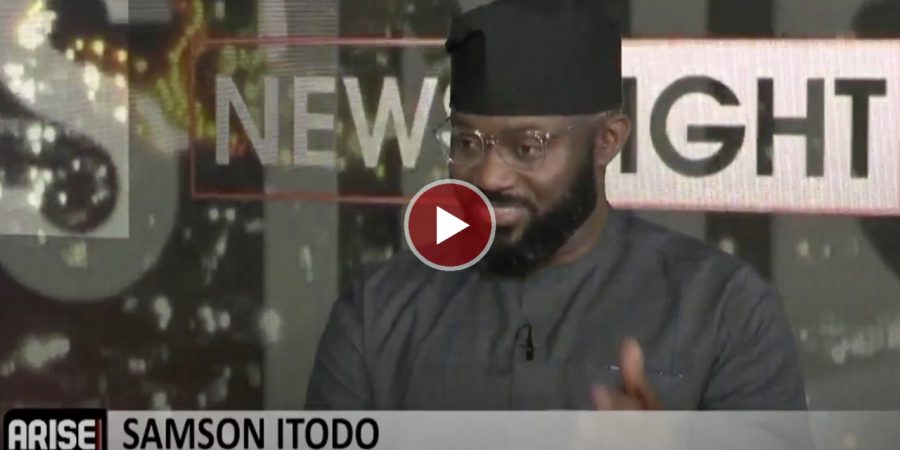Executive Director of YIAGA Africa, Samson Itodo, has said that Nigeria’s newly nominated electoral umpire, Professor Joash Ojo-Amupitan, will have his work cut out for him if confirmed as Chairman of the Independent National Electoral Commission (INEC). He warned that the new leadership must prioritise transparency, professionalism, and consistency to rebuild trust in the electoral process ahead of the 2027 general elections.
Speaking in an interview with ARISE News on Thursday, Itodo said:“When you look at his pedigree and academic accomplishments, they are unimpeachable. He has all the professional qualifications. But when you look at INEC as an institution, you require more than that. You require individuals who have the courage to withstand political pressure.”
He noted that while Professor Amupitan may lack direct experience in election administration, his background as an election litigation expert gives him some insight into the system.
“Once you manage election litigation, you have a certain level of understanding about how elections work, even though it doesn’t mean you understand election administration. At the end of the day, if he is cleared by the Senate, the team he works with is critical,” Itodo stated.
The YIAGA Africa director emphasised that the incoming chairman faces an urgent timeline with several off-cycle elections and the 2027 general election timetable due in February.
“He doesn’t have sufficient time if he is confirmed. You have the Anambra elections, the FCT elections, two governorship elections next year, and by February, the timetable for the 2027 elections must be out. This entire transition process needs to come to a close as soon as possible,” he said.
On the confirmation process, Itodo urged the National Assembly to ensure full transparency and public participation.
“The Senate needs to ensure that in the confirmation process, it is open and transparent. It should issue a public call for memoranda and petitions. By next week, his name will likely be read on the floor, so there is still time to allow stakeholders to make submissions,” he added.
He outlined key priorities for the incoming chairman, including election funding, operational reforms, and technological transparency.
“The first issue is the budget. The next election is projected to cost about ₦840 billion, up from ₦305 billion in 2023. Sixty-five percent of that funding should be released early because INEC needs to begin deploying non-sensitive materials within six months,” he explained.
Itodo also called for consistent application of INEC’s guidelines and greater scrutiny of its technology platforms.
“The inconsistent application of INEC guidelines must stop. The new chairman must subject the BVAS and IReV backend to public scrutiny to deepen citizens’ confidence,” he said.
On ensuring independence and credibility, he outlined immediate steps Professor Amupitan could take:
“There are three ongoing actions that will define his independence — the registration of political parties, the conduct of the Anambra and other elections, and the consistency in applying INEC’s policies. When the commission takes decisions, it must communicate them to citizens in a timely manner. That’s how to build confidence.”
Itodo concluded by stressing that political interference and funding manipulation could undermine the commission’s performance.
“If they starve him of funds, they’ve already set him up for failure. Politicians have a big role to play. Even if he is excited about reforms, if those responsible for legislating and funding them fail to act, we’ll be back to the same cycle,” he warned.
He added that for INEC to succeed, reforms must extend to its internal structure and personnel:
“The quality, character, and credibility of resident electoral commissioners will determine how successful INEC becomes. It’s not a one-man show. The chairman must work with people of courage and competence to deliver credible elections.”
Boluwatife Enome
Follow us on:



